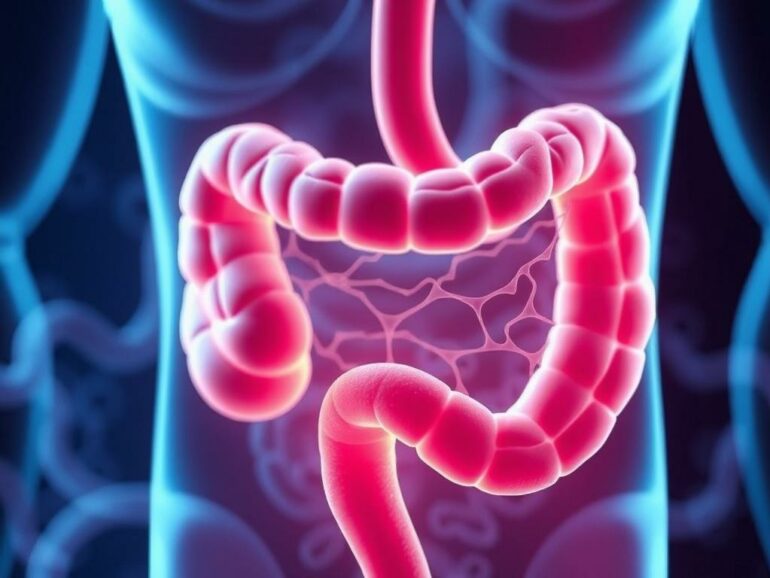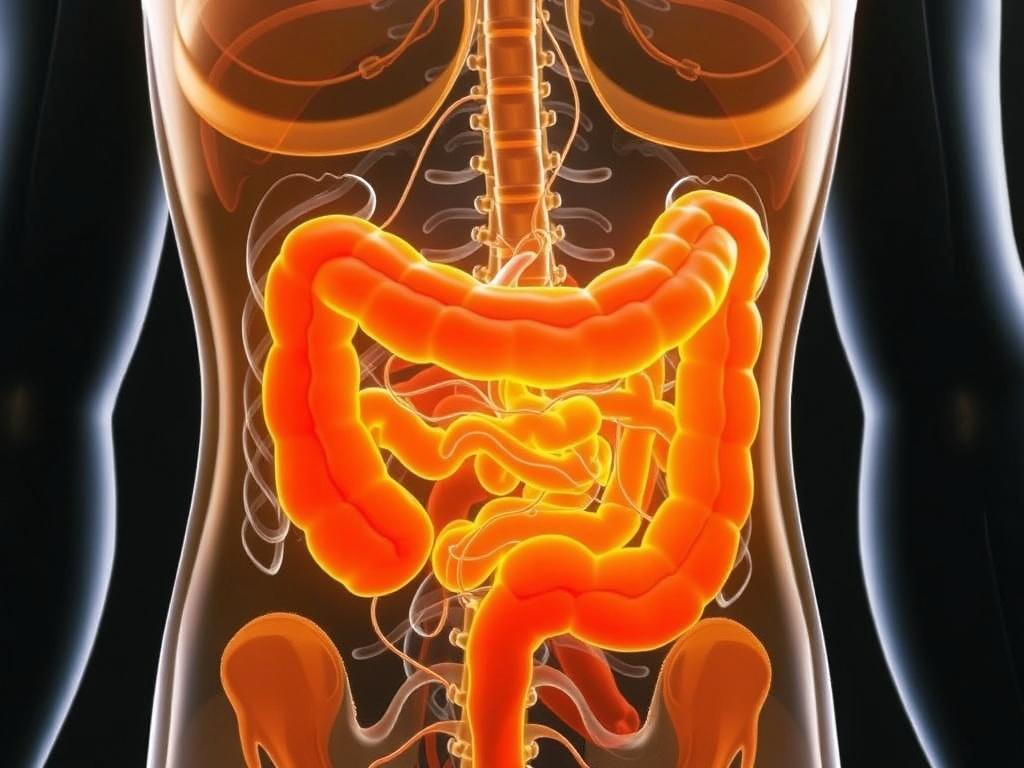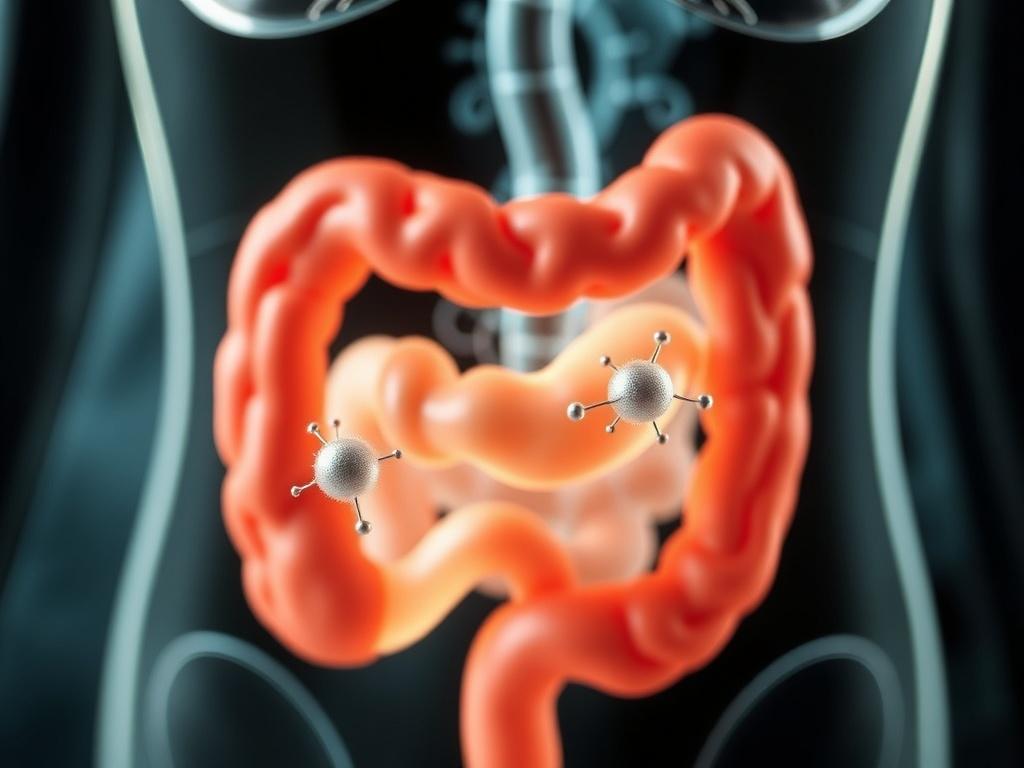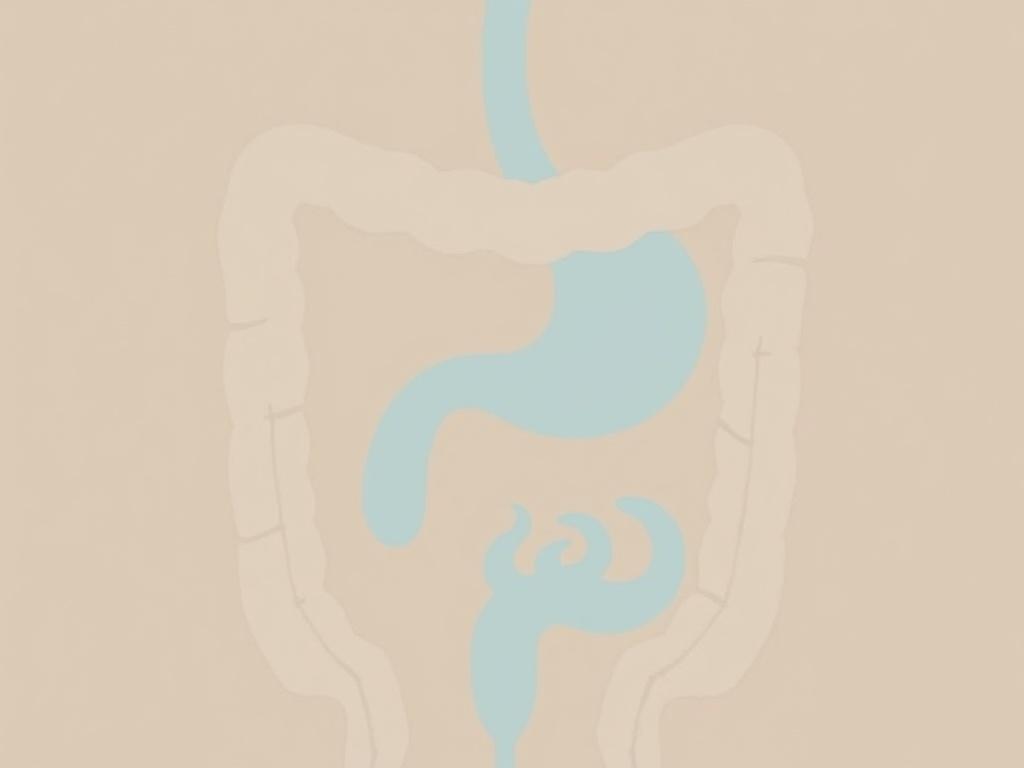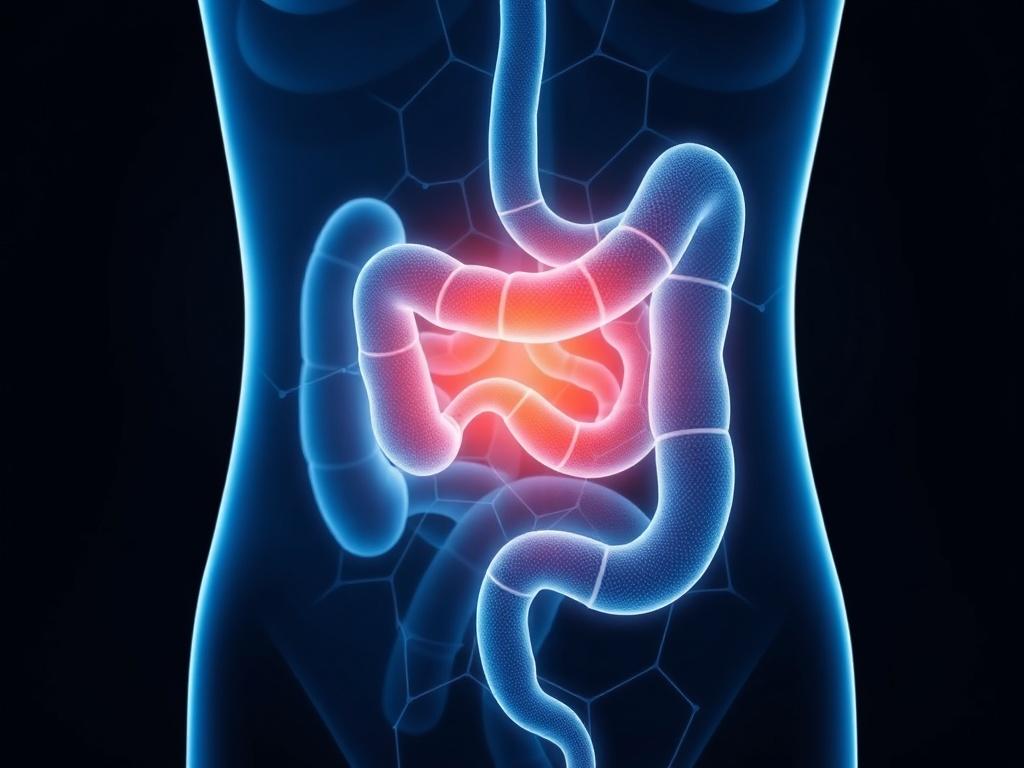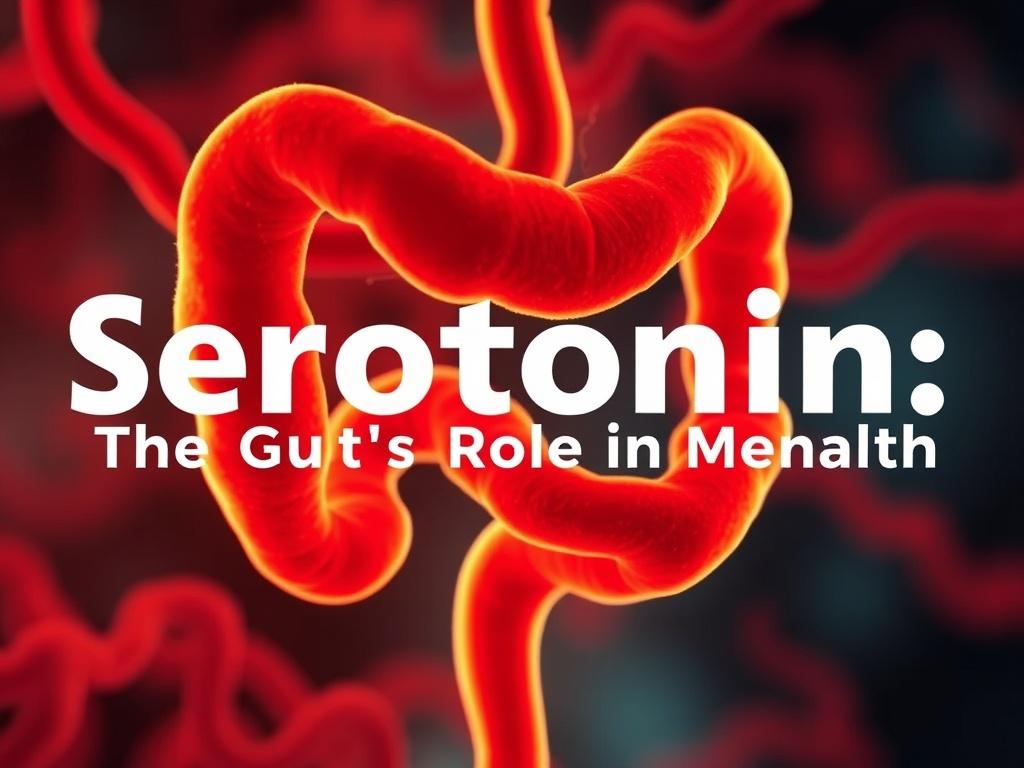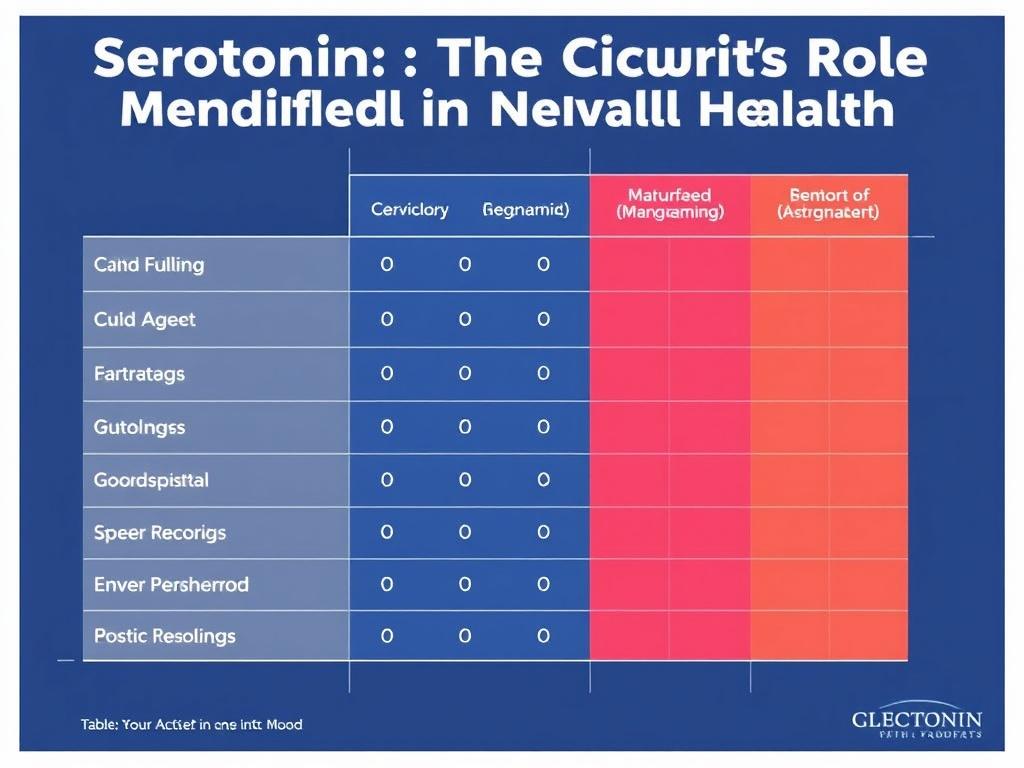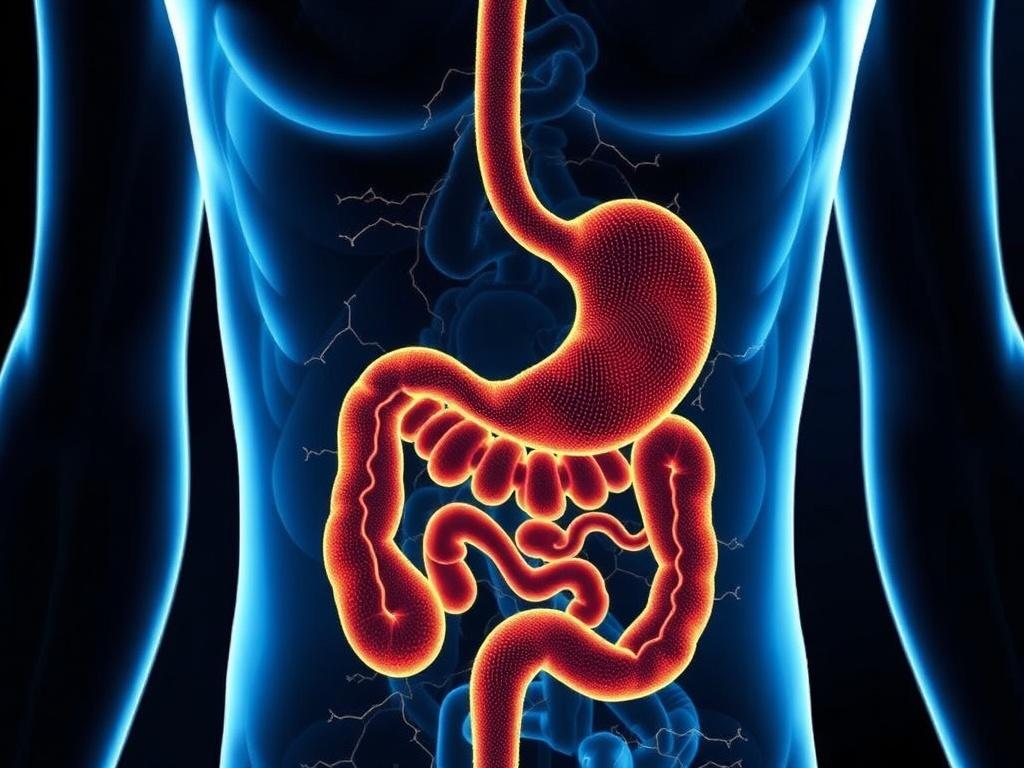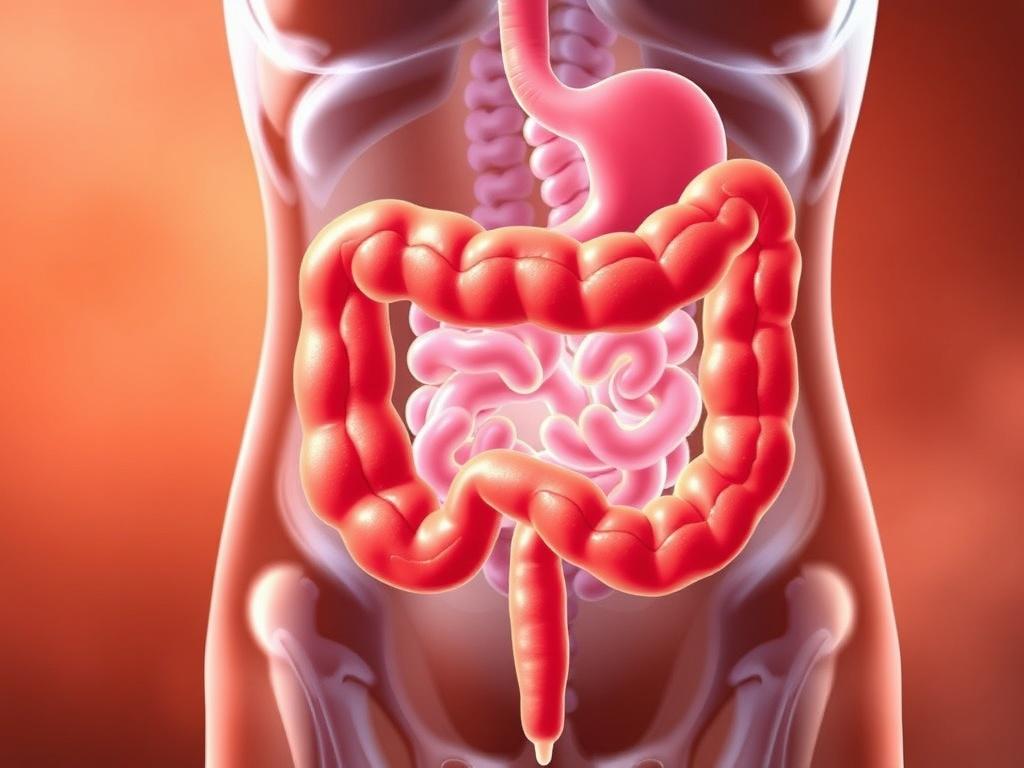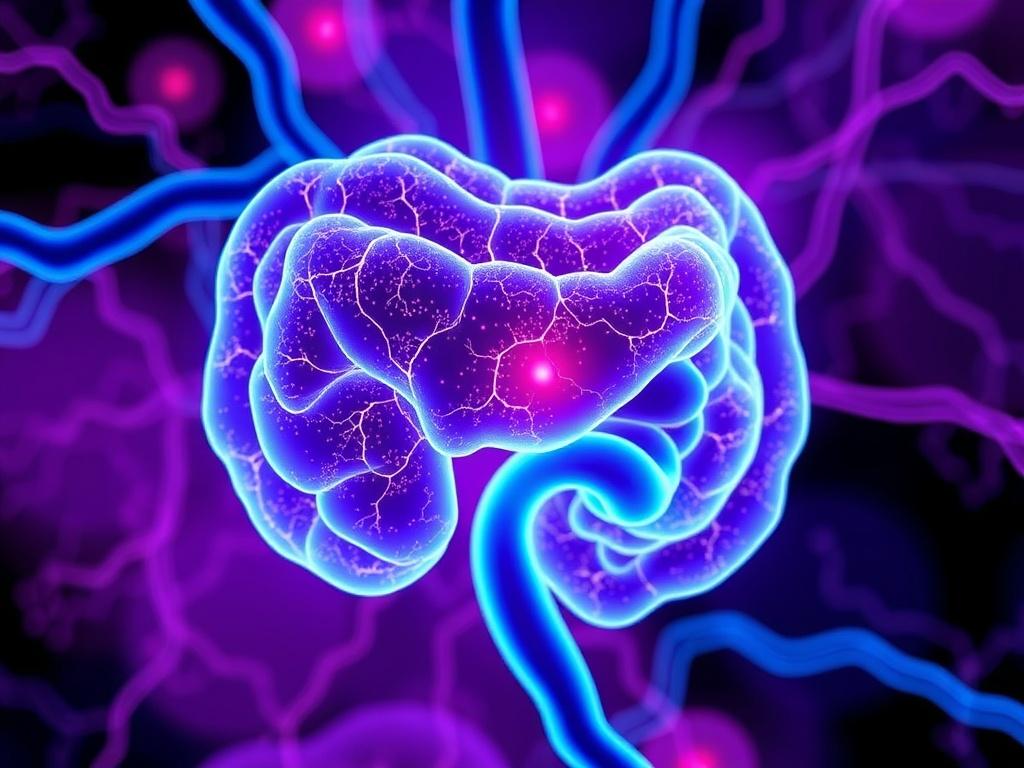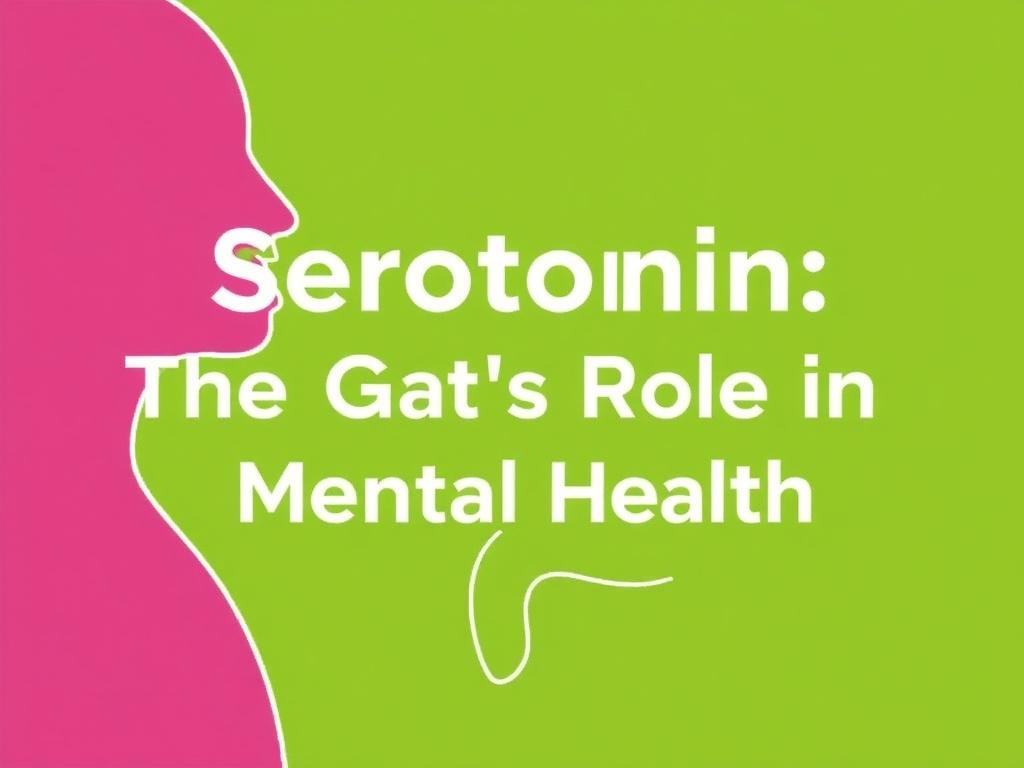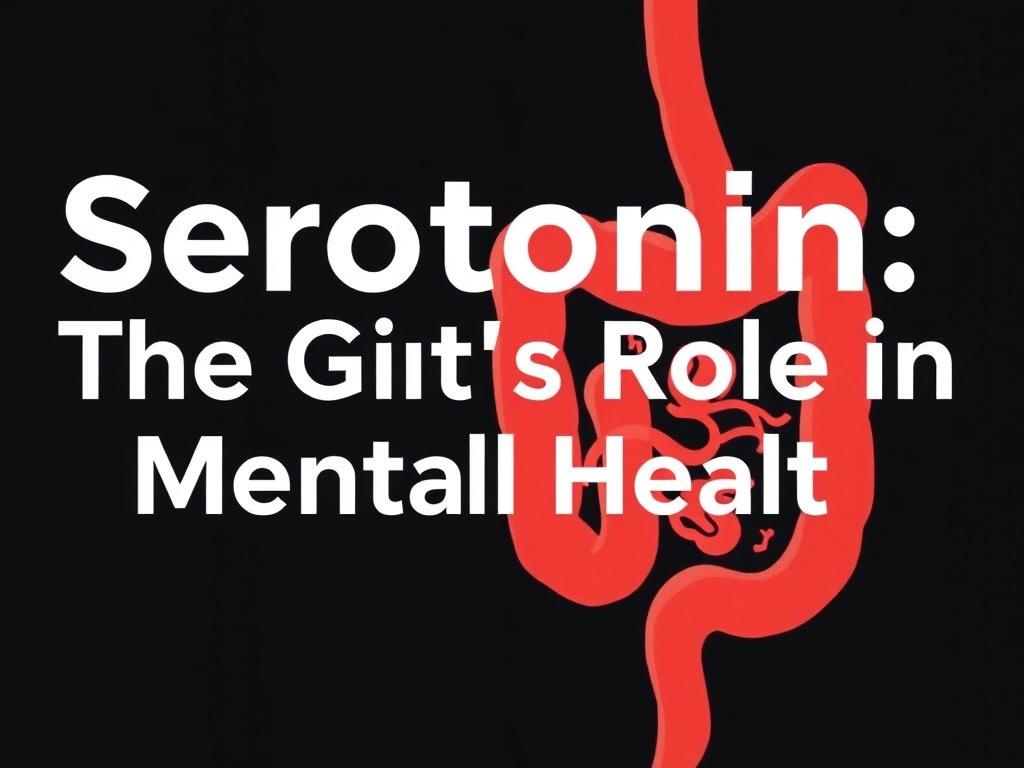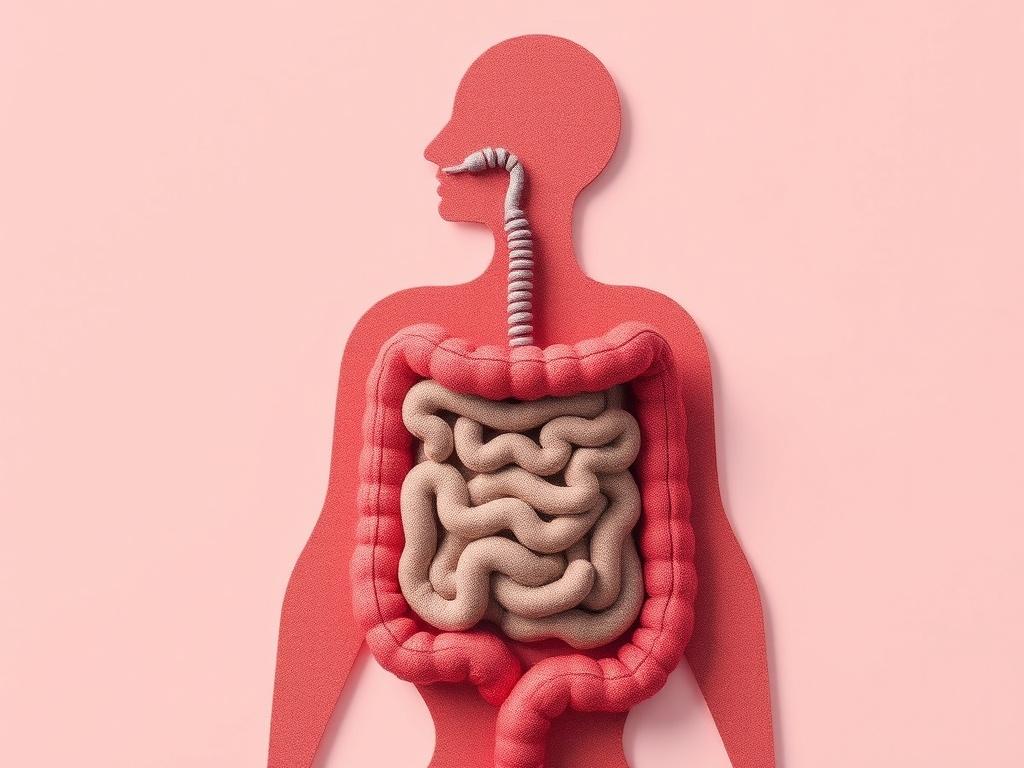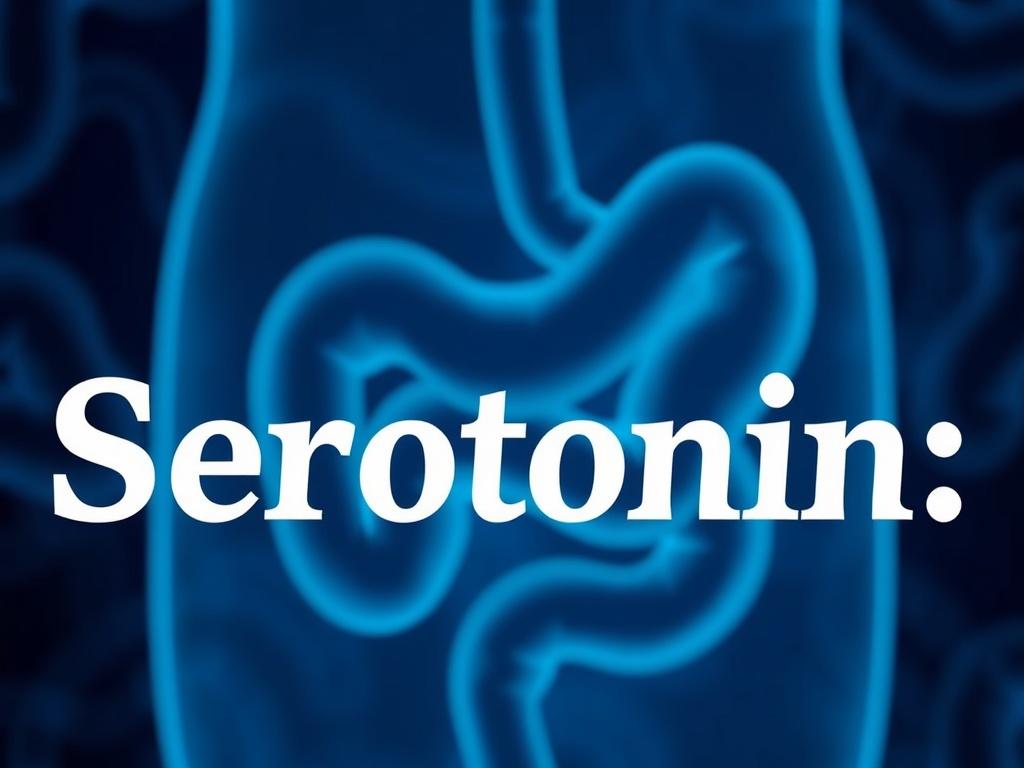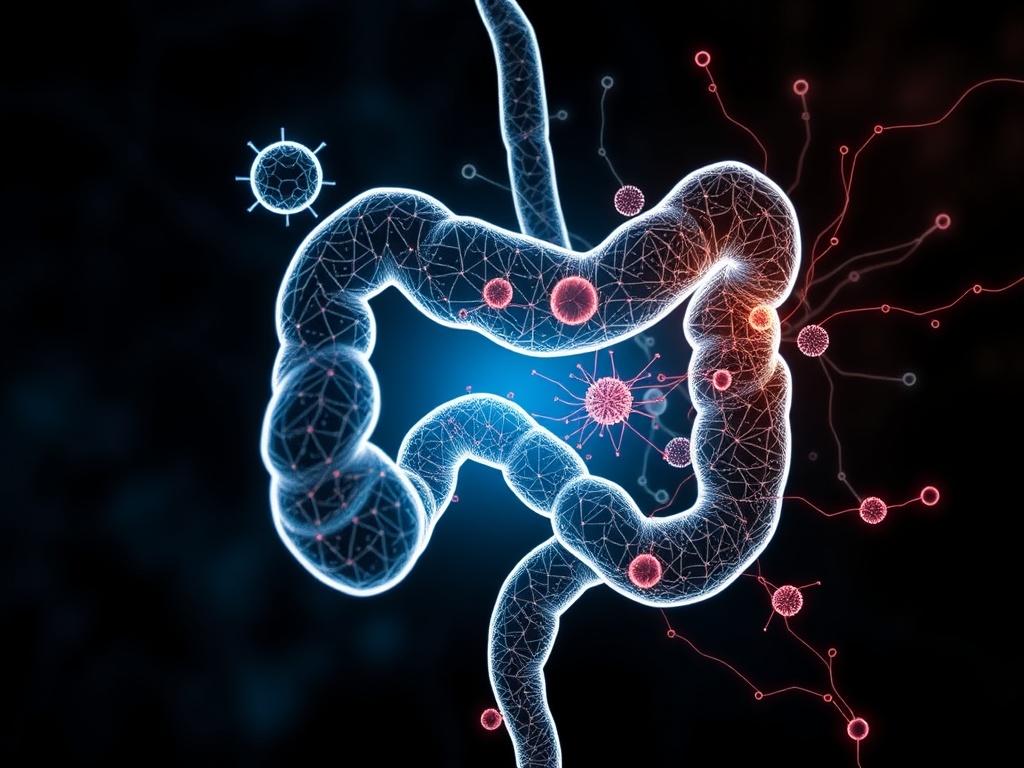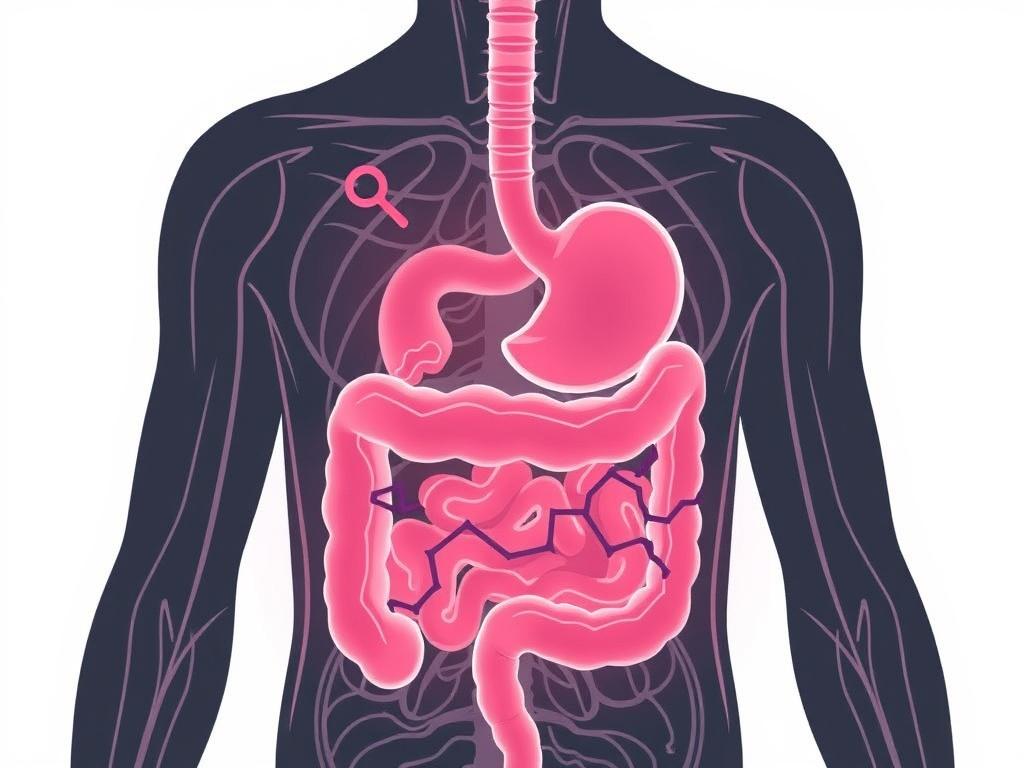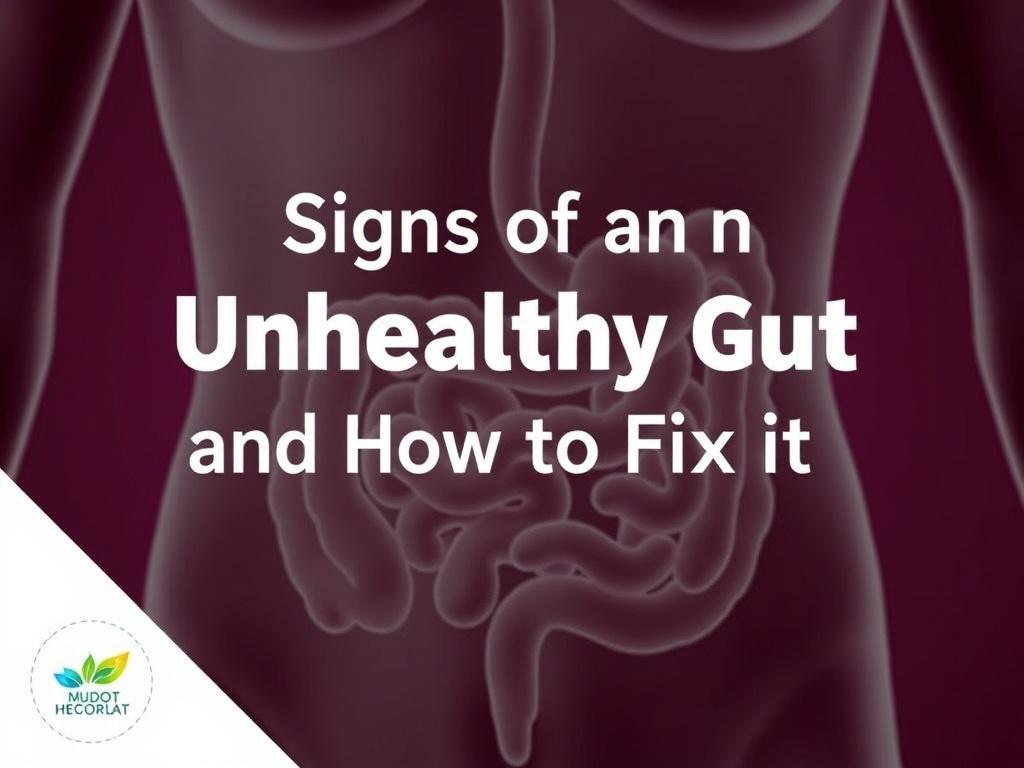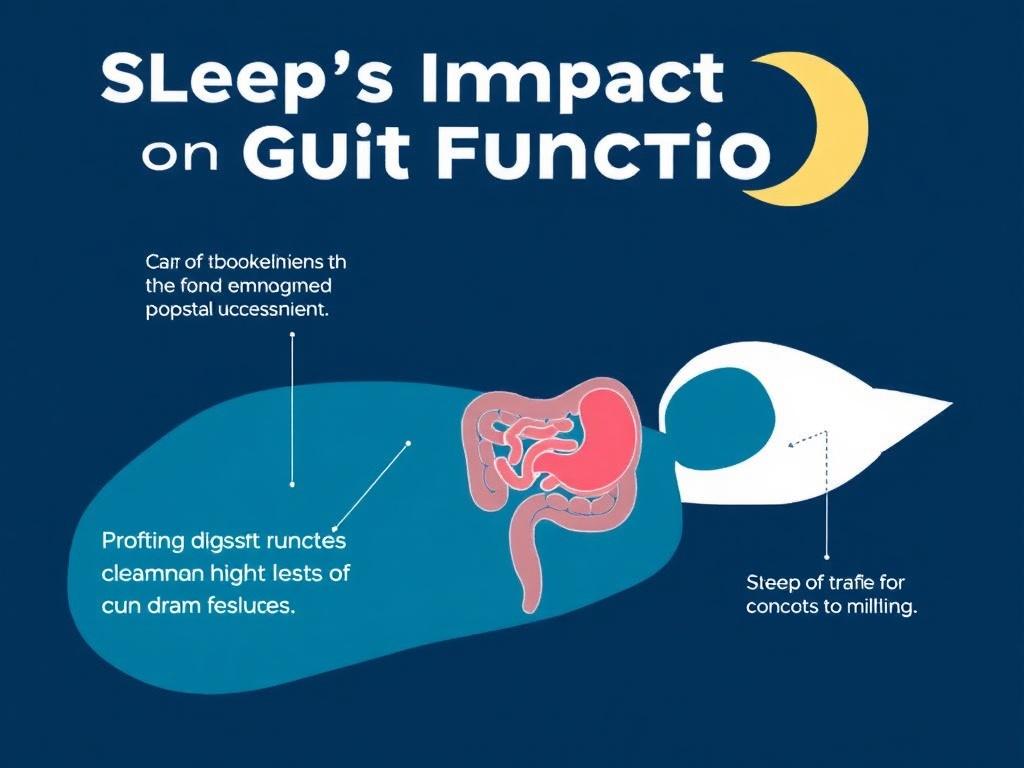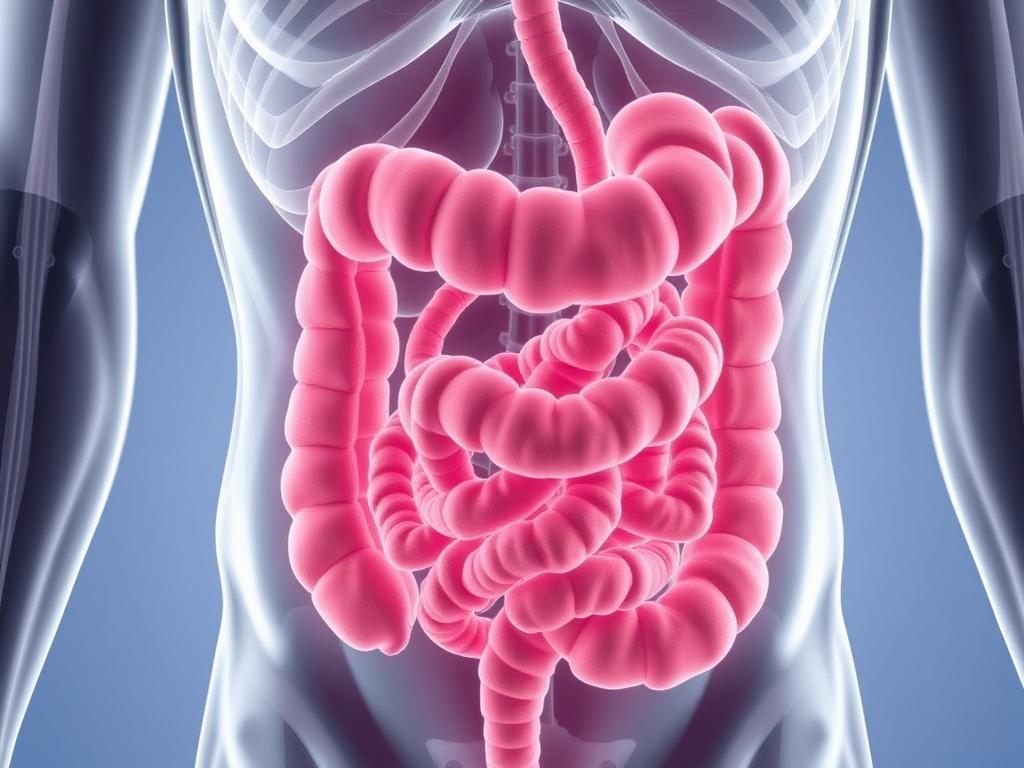The idea that your stomach could influence your mood might sound surprising, but it’s one of the most exciting developments in neuroscience and nutrition over the past two decades. When we talk about serotonin, most people think of it as a brain chemical that helps regulate mood, sleep, and appetite. But here’s the twist: a huge portion of the body’s serotonin is made in the gut. This simple fact shifts the conversation from “brain only” to a more connected perspective — the gut and brain are in constant dialogue, and serotonin is one of their many shared languages. In this article I’ll walk you through what serotonin is, how it’s produced, why the gut is so important, what the research says about the gut’s impact on mental health, practical steps you can take to support a healthier gut-brain relationship, and how to separate the well-supported facts from the hype.
What Is Serotonin — in Plain Language
Serotonin is a neurotransmitter — a chemical messenger — that helps cells in the nervous system communicate. It influences many functions: mood, appetite, digestion, sleep, memory, and even some aspects of social behavior. You’ve probably heard of selective serotonin reuptake inhibitors (SSRIs), a common class of antidepressant medications that raise serotonin levels in the brain. But serotonin’s story isn’t limited to brain chemistry. There’s a whole side of serotonin that lives and works in your gut, playing a central role in digestion and interacting with the immune system and gut microbes.
The reason this matters is that the nervous system in your gut — the enteric nervous system — contains hundreds of millions of neurons and operates semi-independently of the brain. It uses many of the same neurotransmitters, including serotonin. The gut produces and stores the majority of the body’s serotonin, and it has receptors for serotonin that influence how food moves through the digestive tract and how the gut communicates with the central nervous system.
The Gut-Brain Axis: A Two-Way Street
You can think of the gut-brain axis as a busy two-lane highway full of chemical messages, electrical signals, hormones, and immune signals. Information travels in both directions: the brain sends signals to the gut (think of “butterflies” before a big presentation), and the gut sends signals back up to the brain (think of how a bad stomach bug can make you feel foggy and low). Serotonin is one of the important messengers on this route.
Key components of the gut-brain axis:
- Vagus nerve: the direct neural link between gut and brain that transmits signals quickly.
- Enteric nervous system: a local nervous system in the gut that manages digestion and sends signals to the brain.
- Immune system: gut immune cells produce cytokines that can affect brain function and mood.
- Microbiome: gut bacteria produce metabolites and influence serotonin production and immune signaling.
- Metabolic and endocrine signals: hormones and metabolites produced by gut cells and microbes that circulate systemically and can reach the brain.
All of these play into how gut health influences mental states like anxiety, depression, and stress reactivity.
How Much Serotonin Is in the Gut?
Most serotonin in the body is produced in the gut, not the brain. The gut’s enterochromaffin cells synthesize serotonin from the amino acid tryptophan. This serotonin acts locally to regulate digestion — contracting and relaxing intestinal muscles, controlling secretion, and communicating with nearby neurons. Some serotonin can also influence platelets and the vascular system. While serotonin produced in the gut doesn’t cross the blood-brain barrier, the gut’s serotonin can indirectly influence brain function through neural and immune pathways, and by affecting levels of tryptophan that reach the brain.
How Serotonin Is Made: Biology in Everyday Language
To understand how the gut affects serotonin you don’t need a PhD, but a little biology helps. Serotonin is made from tryptophan, an essential amino acid you get from food. Two important steps happen:
- Tryptophan is converted into 5-hydroxytryptophan (5-HTP) by an enzyme called tryptophan hydroxylase (TPH). There are two forms of this enzyme: TPH1 (mainly in the gut) and TPH2 (mainly in the brain).
- 5-HTP is converted into serotonin (5-hydroxytryptamine or 5-HT) by another enzyme called aromatic L-amino acid decarboxylase.
Because TPH1 works mainly in the gut, the gut is the primary serotonin factory. But how much tryptophan makes it to the brain depends on diet, competition from other amino acids, and metabolic signals influenced by the gut microbiome.
Microbes and Serotonin: An Unlikely Partnership
The gut microbiome — trillions of bacteria and other microorganisms — plays several roles in this system:
- They produce metabolites (like short-chain fatty acids) that influence enterochromaffin cells to make serotonin.
- They compete for or metabolize tryptophan, affecting how much is available to the host.
- They can modulate immune function and inflammation, which in turn affects brain health and neurotransmitter systems.
Studies in animals show that germ-free mice (born without a microbiome) have altered serotonin levels and behavior, and that introducing certain bacterial strains can normalize serotonin production and change behavior. In humans the picture is more complex but still suggestive: people with certain mood disorders often show changes in microbiome composition.
What Research Says About Gut Serotonin and Mental Health
0
Research is rapidly expanding, and while not all questions are settled, several themes have emerged:
- Correlation between gut microbiome composition and mood disorders: Many studies find that people with depression or anxiety often have different gut microbiome patterns compared with healthy controls.
- Microbiome transplantation in animals alters behavior: Transplanting microbiota from depressed humans into rodents can induce depression-like behaviors in the animals, suggesting a causal role for microbes or microbial metabolites.
- Probiotics and “psychobiotics”: Certain probiotics appear in small trials to lower anxiety or improve mood, though results are inconsistent and effects are usually modest.
- Inflammation as a mediator: Chronic low-grade inflammation, which can arise from gut dysbiosis or increased intestinal permeability, is linked to depression and can alter neurotransmitter systems, including serotonin.
- Diet and mental health: Dietary patterns that support a diverse, stable microbiome — such as Mediterranean-style diets high in fiber, healthy fats, and plant foods — are associated with lower rates of depression and better mood in observational studies and some trials.
Together, these findings point to a meaningful connection between gut function (including serotonin signaling) and mental health, while also reminding us that the system is complex and individual differences are large.
What We Still Don’t Know
Important questions remain:
- Which specific microbes or microbial products have the largest impact on serotonin and mood?
- How much can dietary or probiotic interventions alter serotonin-related pathways in humans?
- Who benefits most from interventions targeting the gut — and who won’t?
- How do genetics, early life experiences, medications, and other factors interact with the microbiome to affect serotonin and mental health?
Researchers are actively investigating these questions. In the meantime, we can use current knowledge to guide practical, lower-risk strategies for supporting gut and mental health.
Practical Steps to Support Gut Serotonin and Mental Well-Being
You don’t need to wait for definitive studies to adopt habits that support both gut health and mood. Below are evidence-aligned, realistic strategies that help create an environment where healthy serotonin signaling is more likely.
1. Eat a Fiber-Rich, Nutrient-Dense Diet
Fiber feeds beneficial gut bacteria, which produce metabolites that support gut cell health and influence neurotransmitter systems. Aim for a variety of plant foods:
- Vegetables of many colors
- Fruits
- Whole grains
- Legumes
- Nuts and seeds
A Mediterranean-style diet — rich in vegetables, legumes, fish, olive oil, and whole grains — has been associated with lower rates of depression in multiple studies. Eating a diverse, minimally processed diet gives your microbiome more to thrive on, and that benefits gut-derived serotonin pathways.
2. Prioritize Foods Containing or Supporting Tryptophan
Tryptophan is the serotonin precursor. Foods containing tryptophan include turkey, chicken, eggs, dairy, tofu, nuts, seeds, and soy products. However, simply eating tryptophan isn’t a direct route to higher brain serotonin because uptake to the brain depends on competition from other amino acids and specific transport mechanisms. Still, balanced meals with protein, healthy fats, and complex carbs help regulate blood sugar and insulin, which can indirectly favor tryptophan transport into the brain.
3. Keep Stress in Check
Chronic stress disrupts gut barrier function, alters the microbiome, increases inflammation, and can disrupt serotonin signaling. Stress management techniques that can help include:
- Meditation and mindfulness
- Moderate exercise
- Sleep hygiene
- Therapy and social support
Even small daily practices — a short walk, breathing exercises, or better sleep routines — can reduce stress-related gut disturbances and support a healthier gut-brain axis.
4. Move Regularly — Exercise Matters
Exercise benefits the brain and the gut. Physical activity can increase the diversity of the microbiome, reduce inflammation, and improve mood. Aerobic activities like walking, jogging, cycling, and swimming are particularly beneficial, but strength training and flexibility exercises also help. The goal is consistency rather than intensity: regular movement supports both serotonin production pathways and overall well-being.
5. Consider Probiotics and Fermented Foods Carefully
Fermented foods like yogurt, kefir, sauerkraut, kimchi, and miso contain live microbes that can benefit gut health. Specific probiotic strains have shown promise in reducing anxiety and depressive symptoms in some trials; strains from Lactobacillus and Bifidobacterium genera are often studied. However, results are variable and strain-specific, and not everyone responds. If considering probiotics:
- Choose products with well-studied strains and adequate CFU counts.
- Consider talking with a healthcare provider, especially if you have a serious illness or compromised immune system.
- Remember that probiotics are an adjunct, not a cure — they work best with dietary, lifestyle, and psychological supports.
6. Prioritize Sleep
Sleep disruption affects neurotransmitter systems, immune function, and the gut microbiome. Poor sleep is associated with worse mood and cognitive function. Aim for consistent sleep routines, a cool and dark bedroom, and regular sleep-wake times. Improving sleep quality supports many pathways that ultimately influence serotonin signaling and mental health.
7. Use Medications and Supplements Under Guidance
If you have clinically significant depression or anxiety, medications like SSRIs can be life-changing and act primarily in the brain, often improving quality of life and function. Some supplements — such as omega-3 fatty acids, vitamin D, and certain B vitamins — have evidence supporting mood benefits in some people. Melatonin can help sleep but should be used appropriately. Always consult a healthcare professional before starting or stopping medications or supplements.
Real-World Examples and Case Scenarios
Let’s look at a few realistic scenarios that show how gut-serotonin knowledge can apply:
Case 1: Stress-Related Digestive Issues and Low Mood
A 35-year-old professional notices worsening digestive distress (bloating, irregular bowel movements) during a busy period, alongside increased anxiety and fatigue. A step-by-step plan might include:
- Basic dietary improvements: increase fiber, reduce ultra-processed foods and excess caffeine.
- Stress reduction: daily 10-minute breathing practices and a weekly longer relaxation session.
- Sleep hygiene improvements: consistent bedtimes and reduced screen time before bed.
- Discussion with a provider about short-term use of an SSRI or referral to therapy if mood is significantly impaired.
Over weeks, these changes often reduce gut symptoms and restore mood, underscoring how intertwined these systems are.
Case 2: Recurrent Depression with GI Symptoms
A 48-year-old with recurrent depression also has IBS-like symptoms. A coordinated approach might include:
- Comprehensive medical review for inflammatory conditions or celiac disease.
- Referral to a mental health professional for psychotherapy and medication review.
- Dietary consultation focusing on a Mediterranean-style diet and trialing low-FODMAP guidance if IBS is severe.
- Consideration of a probiotic targeted to IBS symptoms and a trial in coordination with their provider.
This coordinated plan treats both the mind and gut and recognizes their mutual influence.
Table: Quick Reference — How Gut Factors Influence Serotonin and Mood
| Factor | How It Affects Gut Serotonin | Impact on Mental Health |
|---|---|---|
| Dietary fiber | Feeds microbes that produce metabolites stimulating enterochromaffin cells | Supports mood stability and reduces inflammation-associated mood disturbances |
| Tryptophan-rich foods | Provides building blocks for serotonin synthesis | Can support neurotransmitter balance when paired with healthy meals |
| Microbiome diversity | Alters metabolite profiles that regulate enterochromaffin cells and immune signaling | Associated with lower risk of anxiety and depression in observational studies |
| Chronic stress | Disrupts gut barrier, alters microbes | Increases risk for mood disorders and inflammation |
| Sleep disruption | Impairs microbial rhythms and gut barrier function | Worsens mood, cognitive function, and emotional regulation |
| Antibiotics | Can temporarily reduce microbiome diversity | May worsen mood in some cases; benefits usually outweigh risks when medically needed |
Common Myths and Misconceptions
Because this field is exciting, myths spread quickly. Let’s bust a few common misconceptions:
Myth: Most of the serotonin made in the gut goes straight to the brain.
Fact: Gut-produced serotonin does not directly cross into the brain because of the blood-brain barrier. Its influence on brain function is indirect — through nerves, immune signals, and modulation of tryptophan availability.
Myth: Taking probiotics will cure depression.
Fact: Probiotics may help some people with mood symptoms, but they are not a cure for depression. Evidence is mixed, strain-specific, and typically shows modest effects. Probiotics are best seen as one tool among many.
Myth: If your microbiome looks “different,” you have a mental health disorder.
Fact: Microbiome composition varies widely across healthy people. Differences do not equate to disease, and context matters: diet, antibiotics, environment, and genetics all shape the microbiome.
How Medical Treatments Fit Into This Picture
Medical treatments for mood disorders, including SSRIs, psychotherapy, and other interventions, remain central. The gut-brain axis perspective adds tools rather than replacing standard care. In many cases, a combined approach — medical treatment for significant mood disorders paired with lifestyle and dietary strategies to support gut health — yields the best outcomes.
Examples:
- SSRIs can quickly reduce severe depressive symptoms and enable a person to engage more fully in behavioral changes like exercise and therapy.
- Dietary changes and probiotics may reduce residual symptoms and improve overall well-being but typically won’t replace necessary medication for severe conditions.
- Psychotherapy can target thought patterns and behaviors while also helping manage stress, which benefits the gut.
Emerging Frontiers: Where the Science Might Go Next
Exciting areas of research include:
- Identifying microbial metabolites that directly influence brain function and mood.
- Personalized nutrition and microbiome-based therapies tailored to an individual’s microbiome and genetics.
- Understanding how early-life microbiome development affects later mental health risk and resilience.
- Developing next-generation “psychobiotics” — bacteria engineered or selected for mood benefits.
As we learn more, interventions are likely to become more precise and integrated into standard psychiatric care.
Practical Checklist You Can Use Today
Here’s a simple checklist to help you start supporting your gut-brain health:
- Increase plant-based foods and fiber diversity gradually.
- Include lean proteins and tryptophan-containing foods within balanced meals.
- Move daily — aim for at least 30 minutes of moderate activity most days.
- Practice a stress-management routine (mindfulness, breathing, or a relaxing hobby).
- Prioritize 7–9 hours of quality sleep with consistent timing.
- Consider fermented foods or a probiotic trial, but keep expectations realistic.
- Talk to a healthcare provider if mood symptoms are persistent or severe.
Practical Risks and When to Seek Help
While dietary and lifestyle changes are generally safe, there are scenarios where medical attention is necessary:
- Suicidal thoughts, self-harm, or severe mood changes — seek immediate professional help.
- Sudden, unexplained physical symptoms like severe abdominal pain or blood in the stool — consult a clinician.
- If you have a serious or chronic medical condition, consult your healthcare provider before trying probiotics or supplements.
Remember: improving gut health is not a replacement for professional mental health care when it’s needed — it’s a complementary approach.
Stories from Real Life
People often report meaningful improvements when they take a combined approach. For example, someone with mild-to-moderate depression who added daily walks, improved sleep, and adopted a more plant-rich diet often reports increased energy and a brighter mood within weeks. Another person with chronic IBS and anxiety found that a tailored elimination diet, referral to a therapist, and a trial of a specific probiotic reduced both digestive and anxiety symptoms. These stories are anecdotal, but they reflect the multifactorial reality of gut-brain health: small, sustained changes across diet, movement, stress management, and medical care often add up to big improvements.
Resources for Continuing Learning
If you want to dive deeper, look for reputable sources:
- Academic review articles from peer-reviewed journals on the gut-brain axis and microbiome.
- Trusted health organizations and university medical centers offering accessible summaries.
- Books by clinicians and neuroscientists that translate complex research into practical advice.
- Registered dietitians and mental health professionals who integrate nutrition and lifestyle into care.
Final Thoughts Before the Conclusion
The gut’s role in mental health is a vibrant and evolving field. Serotonin — often thought of as a brain chemical — is deeply connected to gut function, microbial communities, and systemic signals that influence how we feel. The most helpful takeaway is that small, practical changes you can make today may support both gut and mental health. While we await more definitive answers, adopting a lifestyle that promotes microbiome diversity, reduces chronic stress, and supports overall metabolic and immune health is a sensible and empowering strategy.
Conclusion
Serotonin’s story teaches us that mental health is not isolated in the brain; it’s woven into biology that spans the gut, immune system, microbes, and lifestyle. The gut produces most of the body’s serotonin, influences the availability of serotonin precursors, and communicates with the brain through neural, immune, and metabolic routes. Research supports a meaningful connection between gut health and mood, though mechanisms are complex and individual responses vary. Practical, evidence-aligned steps — a fiber-rich diet, regular movement, good sleep, stress management, and sensible probiotic or supplement use under guidance — can nurture a healthier gut-brain relationship. For serious or persistent mood disorders, combine these strategies with professional mental health care. By recognizing the gut as a partner in mental health, we gain more tools to feel better, think more clearly, and live with greater resilience.
